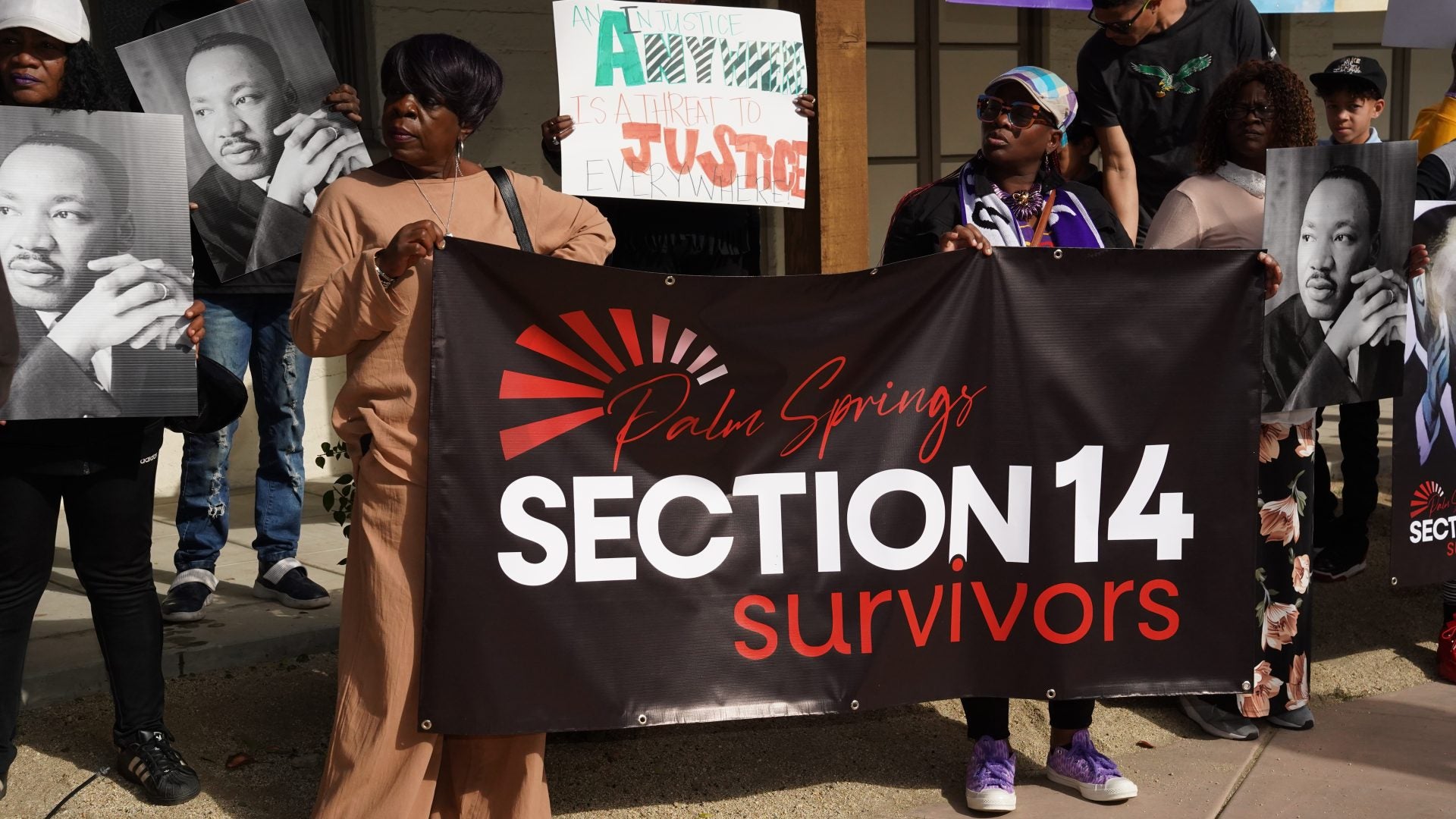
More than 50 years after Palm Springs officials demolished and burned the homes of hundreds of Black and Latino residents in Section 14—a predominantly minority neighborhood once thriving within the city—the survivors have secured a historic $5.9 million settlement. The agreement marks a significant moment in the city’s reckoning with its past, as it becomes one of the few municipalities in the United States to offer reparations for racially motivated displacement.
Back in the late 1950s and ’60s, the one-square-mile community known as Section 14, which was home to Black and Latino homeowners and residents— who were shut out of other neighborhoods due to racial discrimination—was demolished by City officials to make room for commercial development by mostly white business owners.
The destruction of Section 14 not only displaced over 2,000 families but also deprived them of generational wealth, a loss that has reverberated across generations. Today, the posh desert resort city has a thriving tourism industry and the average home costs $649,000.
In 2021, the Palm Springs City Council issued a formal apology for the community’s destruction. While the $5.9 million settlement is far smaller than the $2.3 billion the families initially sought for the displacement of 2000 families, it was celebrated by Pearl Devers, president of the Palm Springs Section 14 Survivors, who called it a “pivotal moment in Palm Springs’ history,” as reported by the Palm Springs Post. In a statement, Devers said, “We tried for years to bring attention to this case…This agreement is a long-overdue recognition of what we experienced and how our lives have been changed because of the destruction of our homes. While no amount of money can fully restore what we lost, this agreement helps pave the way for us all to finally move forward.”
Palm Springs Mayor Jeffrey Bernstein also expressed satisfaction with the agreement. “The City Council is deeply gratified that the former residents of Section 14 have agreed to accept what we believe is a fair and just settlement offer,” he said in a statement.
The agreement was the result of relentless advocacy by survivors and their legal counsel, bolstered by the support of social justice and civil rights organizations, as well as influential leaders, including California Senator Laphonza Butler, the Human Rights Campaign, the Rainbow PUSH Coalition, and the California League of United Latin American Citizens (LULAC).
Beyond financial compensation, the reparations package emphasizes cultural preservation. Plans include creating a monument to honor the history of Section 14 and renaming a Palm Springs Park in tribute to the survivors. Additionally, the city has committed to collaborating with the Section 14 Survivors, including 1,000 survivors and their descendants, to establish a “community-driven cultural and racial healing center.”
“We are making history in Palm Springs. This agreement demonstrates that it’s never too late to acknowledge past wrongs and take meaningful steps toward justice,” said Areva Martin, the attorney representing the Palm Springs Section 14 Survivors. “With this vote, Palm Springs has the opportunity to set a powerful precedent for how cities can meaningfully address historical injustices and create pathways toward true healing.”
The settlement’s approval situates Palm Springs within a small but growing group of municipalities grappling with the legacy of racial injustice through reparations. Evanston, Illinois, for example, became the first city to offer reparations in 2021, allocating 25,000 housing grants and direct cash payments to address systemic discrimination in housing.
Meanwhile, cities like New York City and Tulsa, Oklahoma, have established commissions to study reparations, though progress has varied. However, the two remaining survivors of 1921’s Tulsa Race Massacre, in which the prosperous Greenwood community known as Black Wall Street was burned to the ground—killing hundreds in the process—have had their demands for reparations repeatedly denied. The Palm Springs agreement underscores both the challenges and potential for local governments to take meaningful steps toward restitution.
In addition to the nearly $6 million settlement, the survivors stand to benefit from an additional $21 million allocated to the wider Palm Springs community. The City Council will set aside $20 million for housing programs, half of which will go to a first-time homebuyer assistance program. The other half would establish a community land trust, prioritizing Section 14 families. $1 million will also be set aside for small business support with focused outreach to Section 14 families.